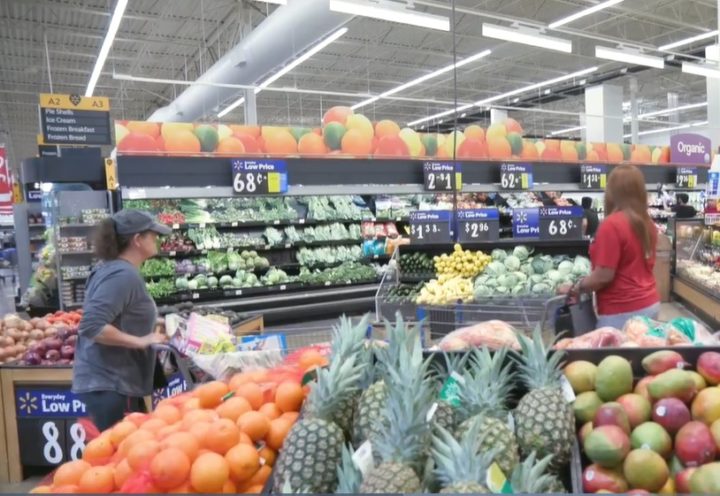
It was disconcerting, inconvenient and kind of annoying last year when grocery stores reduced their hours, cut back on promotions, couldn’t keep their shelves stocked and introduced disorienting safety measures like one-way aisles. Most of that is in our rear-view mirror now – yet more of us think grocery stores are doing a bad job dealing with COVID-19 now than ever before.
Maybe those one-way aisles weren’t so bad after all?
The retail analytics company dunnhumby has conducted its latest Consumer Pulse Survey, gauging how the coronavirus pandemic has impacting our shopping habits. The most notable finding this time is that even though our grocery shopping routines are returning to normal, many of us still aren’t happy about it.
Nearly two-thirds of the shoppers surveyed said their local grocery stores are not doing a good job dealing with the coronavirus, a complete reversal from the early months of the pandemic, when nearly two-thirds said grocery stores were doing a good job. Three-quarters of shoppers now disagree that “things are returning to normal in the grocery store.”
That said, only 17% say they’re worried about the virus and/or concerned that they could get it while shopping. So what are stores doing wrong, if shoppers feel safe there but are still unhappy?
The explanation is likely the same as when dunnhumby conducted its last survey. “All indications are that this has less to do with what the stores are doing as it does with customers tiring of some of these reactions,” dunnhumby explained. Shoppers who were more likely to give stores the benefit of the doubt as they struggled to deal with challenges caused by the coronavirus, are no longer feeling so empathetic. “We found that certain of these actions (out-of-stocks, quantity limits, reduced hours) had a negative impact on customer satisfaction,” dunnhumby went on. “People recognized that they were necessary, but it still made them less than satisfied with their experience.”
One thing shoppers definitely do want, are deals. 55% of survey respondents still feel the overall economy is weak, and 40% say their personal finances are weak. And concern over financial matters has shoppers looking for value. 66% of shoppers are identified as “value-seeking,” as compared to the 19% of shoppers who prioritize quality.
The prevalence of value-seekers has declined a bit since last spring, but shoppers are still looking for the best bang for their grocery bucks. More shoppers are choosing to buy groceries at stores that offer everyday low prices, with 29% saying that Walmart provides the best value of any store. Tellingly, however, second place on the list of stores providing the best value is “none,” cited by 21%. ALDI, Kroger and Target are much further down the list. While many value-seeking behaviors have dropped off slightly, such as seeking out stores with the best sales, shoppers are still interested in coupons – 21% said they “use a lot of coupons,” the same percentage as in the spring, and up several points from about a year ago.
“After living with the pandemic for 20 months, consumers are now twice as concerned about their personal finances as they are about Covid itself. With inflation persisting, and government stimulus phased out, the majority of shoppers are now looking for greater value,” dunnhumby’s President for North America Grant Steadman said in a statement. “Retailers who are perceived as offering more value, and respond to their customers increasing need for this, will earn the loyalty of the new customers they gained during the early phases of the pandemic.”
So you may feel safer going grocery shopping now. But with prices rising, promotions lacking and coupons not as plentiful, you may be more concerned about your local grocery stores’ impact on your wallet than on your health. Stores that take dunnhumby’s advice and give shoppers the deals they’re seeking, may turn out to be the winners once life really does return to normal.
Image source: Walmart















